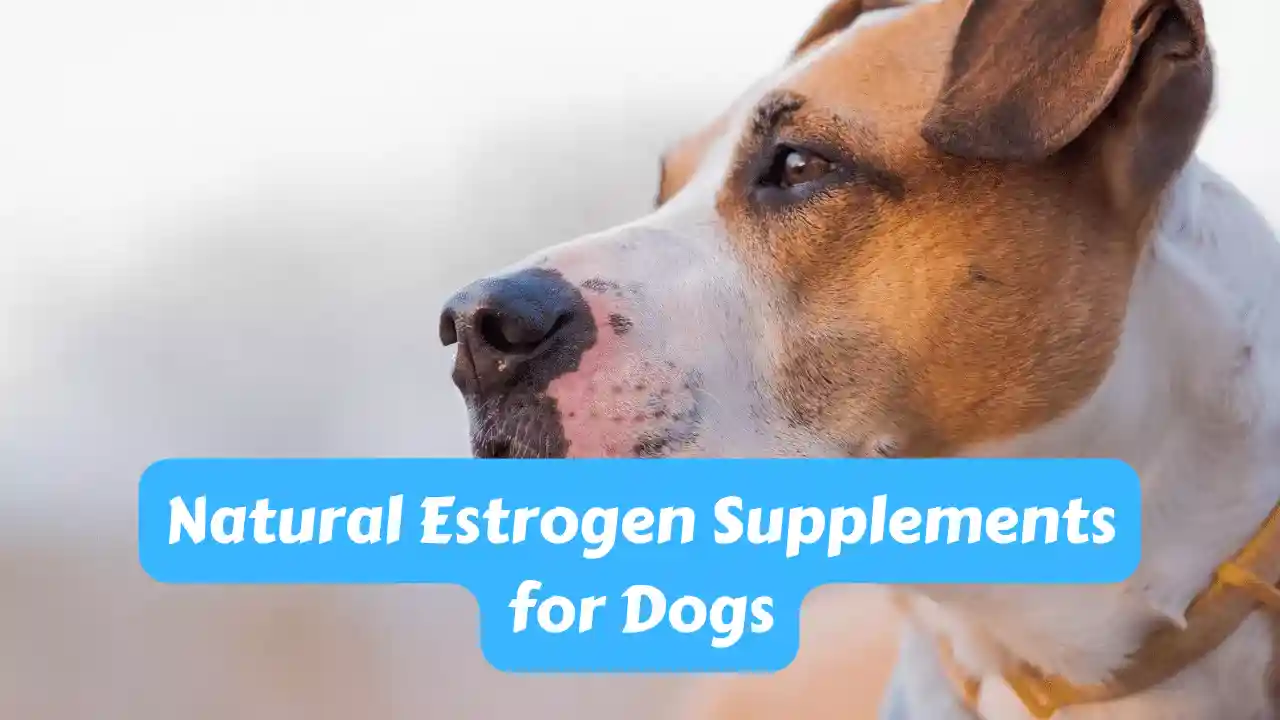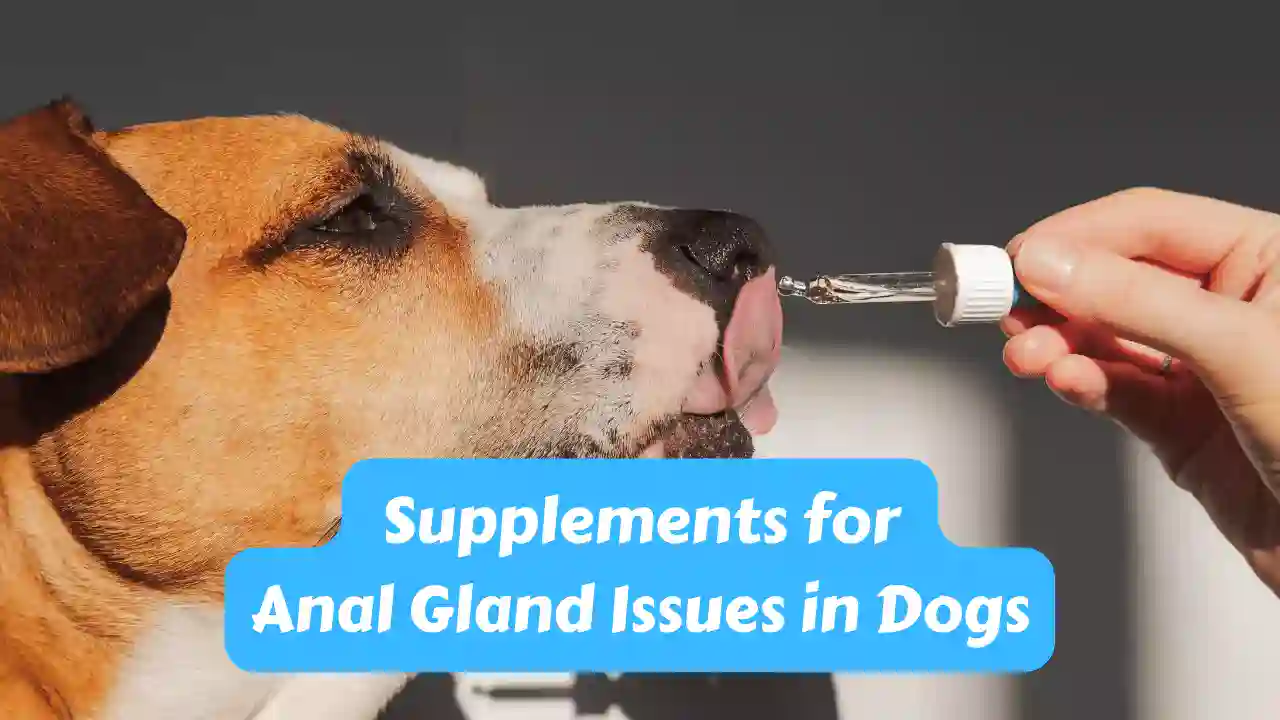10 Best Natural Estrogen Supplements for Dogs
Improve your dog’s health with these top 10 natural estrogen supplements. Keep your furry friend happy and healthy.
If your dog is experiencing hormone-related issues, you may consider giving them natural estrogen supplements. Estrogen is an essential hormone for both male and female dogs and plays a role in many different bodily functions. By providing your dog with extra estrogen, you can help them regulate their hormones and improve their overall health. Here at Best Family Pets, we will discuss natural estrogen supplements for dogs and how they can benefit your pet.
So, what are you waiting for? If you’re looking for a great selection of natural estrogen supplements for dogs? Check out our selection of best natural estrogen for dogs today!
10 Best Natural Estrogen Supplements for Dogs
Estrogen is an important hormone in female dogs that plays a role in their reproductive health and overall well-being. While estrogen levels naturally decrease with age, some dogs may experience hormonal imbalances that can cause health problems. Here are the 10 best natural estrogen supplements for dogs:
- Black Cohosh – Black cohosh is a herb that contains phytoestrogens, which can help regulate estrogen levels in female dogs. It can also help alleviate symptoms of menopause and other hormonal imbalances.
- Flaxseed – Flaxseed is a good source of lignans, which are compounds that can act like estrogen in the body. Adding flaxseed to your dog’s diet can help regulate estrogen levels and improve their overall health.
- Red Clover – Red clover is another herb that contains phytoestrogens and can help regulate estrogen levels in female dogs. It can also help alleviate symptoms of menopause and other hormonal imbalances.
- Soy – Soy is a good source of isoflavones, which are compounds that can act like estrogen in the body. However, soy is not recommended for dogs with thyroid problems or allergies.
- Licorice Root – Licorice root contains compounds that can help regulate estrogen levels and improve reproductive health in female dogs. However, it should be used in moderation and under the guidance of a veterinarian.
- Ginseng – Ginseng is a herb that can help regulate hormonal imbalances and improve overall health in dogs. It can also help alleviate symptoms of menopause and other hormonal imbalances.
- Maca – Maca is a root vegetable that can help regulate hormonal imbalances and improve reproductive health in female dogs. It can also help alleviate symptoms of menopause and other hormonal imbalances.
- Pomegranate – Pomegranate is a fruit that contains compounds that can help regulate estrogen levels and improve overall health in dogs.
- Alfalfa – Alfalfa is a good source of phytoestrogens and can help regulate estrogen levels in female dogs. However, it should be used in moderation and under the guidance of a veterinarian.
- Chasteberry – Chasteberry is a herb that can help regulate hormonal imbalances and improve reproductive health in female dogs. It can also help alleviate symptoms of menopause and other hormonal imbalances.
It is important to note that natural estrogen supplements should only be used under the guidance of a veterinarian and should not be used as a replacement for veterinary care. Always consult with your veterinarian before adding any supplements to your dog’s diet and follow their recommendations for dosage and frequency.
Can I give my dog estrogen?
This isn’t easy to answer without knowing more about your dog’s specific circumstances. That said, it is not recommended to give dogs estrogen supplements unless specifically directed to do so by a veterinarian. Estrogen can have various effects on the body, and giving it to a dog without professional guidance could be harmful. If you are concerned about your dog’s estrogen levels or think they may be low, please get in touch with a veterinarian for more information.
How do you fix the hormonal imbalance in dogs?
There are a few things that you can do to help fix the hormonal imbalance in dogs. One of the best things you can do is to ensure that your dog is getting enough exercise. Dogs that don’t get enough exercise are more likely to suffer from hormonal imbalances. Another thing that you can do is to feed your dog a healthy diet. A healthy diet will help to keep your dog’s hormones in balance. Finally, if you think your dog may suffer from a hormonal imbalance, you should take him to the vet for an examination. The vet will be able to prescribe medication that will help to correct the imbalance.
What supplements help estrogen levels?
Many supplements out there claim to help with estrogen levels, but the truth is that there is no one “miracle” supplement that will work for everyone. However, some of the most popular supplements that people take for estrogen support include:
Black Cohosh
This herb has been used for centuries by Native Americans and is thought to help with various women’s health issues, including hot flashes, night sweats, and vaginal dryness.
Dong Quai
This Chinese herb is often referred to as the “female ginseng” and is commonly used to help with PMS symptoms, menopausal symptoms, and overall hormone balance.
Red Clover
This herb is high in a compound called “isoflavones,” which are thought to act like weak estrogens in the body and can help with hot flashes, night sweats, and other menopausal symptoms.
Soy
Soy contains compounds called “phytoestrogens,” which can mimic estrogen in the body. Soy is a controversial topic, but many women find it helps with menopausal symptoms like hot flashes and night sweats.
Vitamin E
This vitamin is an antioxidant and can help to protect cells from damage. It is also thought to help with vaginal dryness and hot flashes.
Many other supplements are thought to help with estrogen levels, but these are some of the most popular. As always, it is important to speak with your doctor before taking any supplements, especially if you have a medical condition or are taking any medications.
What does estrogen do to dogs?
Estrogen is a hormone that plays an essential role in developing and maintaining female sexual characteristics. In dogs, estrogen is responsible for developing the uterus, ovaries, and fallopian tubes. It also regulates the heat cycle, supports pregnancy, and helps to maintain bone density. Estrogen levels can fluctuate throughout a dog’s life, affecting her behavior, physical appearance, and reproductive ability.
Do dogs need estrogen?
There is no easy answer to this question since every dog is different and will have unique needs. However, estrogen is generally not considered a necessary hormone for dogs, so unless your vet has recommended it for a specific purpose, it’s probably not something you need to worry about.
What helps incontinence in dogs naturally?
You can do several things to help your dog manage incontinence and avoid accidents. First, ensure your dog has easy access to an appropriate bathroom area. If your dog is having trouble holding it, consider providing a potty pad or artificial turf in an easily accessible location. You might also want to try training your dog to use a bell to signal when they need to go out.
In addition, you can make several dietary changes to help your dog’s incontinence. Increasing the fiber in your dog’s diet can help bulk up stools and make them easier to control. Adding Omega-3 fatty acids can also help to increase the elasticity of the bladder and urethra, making it easier for your dog to hold urine.
Finally, many supplements can help to control incontinence in dogs. Supplements such as quercetin and saw palmetto can help to tone the bladder muscles and reduce leakage. Other supplements, such as marshmallow root and uva ursi, can help to soothe the urinary tract and reduce inflammation.
Talk to your veterinarian if you are concerned about your dog’s incontinence. They can help you determine the best course of treatment for your dog’s individual needs.
What are the signs of hormonal imbalance in dogs?
A few key signs may indicate your dog is suffering from a hormonal imbalance. These include changes in weight, hair loss, hot spots, excessive licking or chewing, and changes in behavior. If you notice any of these changes in your dog, it’s essential to take them to the vet for an evaluation. Hormone imbalance in dogs can be caused by some factors, including stress, diet, and underlying health conditions. Treating the underlying cause is vital for restoring balance and preventing further problems.
If your dog displays any of the above signs, it’s essential to take them to the vet for an evaluation. Several factors can cause hormonal imbalances, so it’s necessary to get to the root of the problem. Once the underlying cause is determined, your vet can work with you to develop a treatment plan that will help restore balance and improve your dog’s overall health.
How do I know if my dog has a hormonal imbalance?
Hormonal imbalance in dogs can include changes in weight, hair loss, hot spots, excessive licking or chewing, and changes in behavior. If you notice any of these changes in your dog, it’s essential to take them to the vet for an evaluation. Some factors can cause hormonal imbalances, so it’s essential to get to the root of the problem. Once the underlying cause is determined, your vet can work with you to develop a treatment plan that will help restore balance and improve your dog’s overall health.
Do spayed dogs still produce estrogen?
After a dog is spayed, they no longer produce estrogen. However, they may still have some estrogen before the surgery. Additionally, an overweight dog may have higher estrogen levels due to the additional fat cells. Obesity can also cause false pregnancy symptoms, even in spayed dogs. If you are concerned that your spayed dog is producing too much estrogen, speak to your veterinarian. They can run tests to check hormone levels and make sure your dog is healthy.
-

5 Dog Supplements You Must Know About
Sorting through a pile of dog supplements, vitamins, and magic pills can be overwhelming. Here are five supplements recommended.
-



Dolomite Supplement for Dogs: Top 10 Best Selling List
Discover the best dolomite supplement for dogs! Boost your furry friend’s health with natural ingredients and improve their vitality.
-



Why Use Herbal Supplements for Dogs with Tumors? Tcmvet Baituxiao
Discover the benefits of using TCM herbal supplements for dogs with tumors. Try Baituxiao and support your pet’s health naturally.
-



10 Best Natural Estrogen Supplements for Dogs
Improve your dog’s health with these top 10 natural estrogen supplements. Keep your furry friend happy and healthy.
-



10 Best Supplements for Anal Gland Problems Dogs
Relieve your dog’s anal gland problems with these 10 best supplements. Learn about their benefits and how they can improve your pet’s health.
-



Veterinarian Recommended Joint Supplement for Dogs
Keep your dog active and healthy with veterinarian recommended joint supplements for dogs. Shop now for improved and quality of life.
-



Top 10 Best SmartPak Supplements for Dogs
Improve your dog’s health with our top 10 SmartPak supplements. From joint support to digestive health, we have everything your dog needs.
-



10 Best Zinc Selenium Supplement for Dogs
Boost your furry friend’s health with our top 10 Zinc Selenium supplements for dogs. Shop now and give your pup the care they deserve.
-



10 Best Supplement for Dog Wormer
Looking for effective and safe dog wormer supplements? Check out our top 10 list for the best options to keep your dog healthy and happy.










